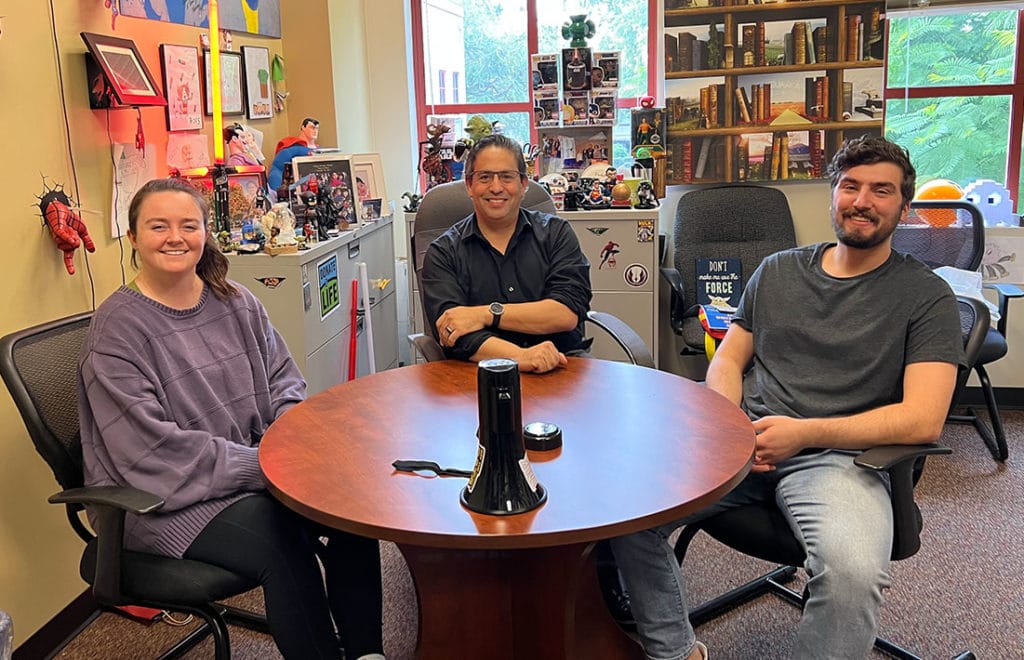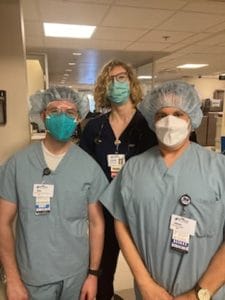A Lifeline for Healthcare Workers Suffering Burnout

Since the pandemic hit in early 2020, nearly 1 in 5 healthcare workers quit their job, with 49% citing burnout as one of the top reasons. Professor Jason Siegel and his students are working to change that dynamic through a contract with HCA Healthcare.
Healthcare workers face daunting obstacles when it comes to seeking help for mental health challenges because doing so could put their medical license at risk. To combat this apprehension, HCA Healthcare wanted to create a comprehensive wellness program to keep their residents from experiencing burnout and show ways to address it.
For Siegel, it was personal and professional: He wanted to help people who struggle with the same types of mental health challenges he faced as an adolescent, as well as give his students the opportunity to work on a stable, yearlong contract with the healthcare company. The result was the contract for Siegel and his students to set up a research lab for HCA hospitals. This contract is the latest in a five-year partnership between Siegel and HCA, with over $518,000 invested in the research since 2017. (Siegel credits PhD student Anne Brafford for her role in establishing the partnership.)
Siegel and his team (Kelsey Carpenter, Savannah Carpenter, Chris Falco, Alexander Marshburn, and Sabrina Menezes) have surveyed resident wellness programs across the country in search of the best ways to prevent the residents from burning out. Division of Behavioral & Organizational Sciences students have been integral by conducting qualitative and quantitative research and surveying residents to find out what it’s like to be a new doctor fresh out of medical school.

Providing students with opportunities to do methods-heavy research is one of the reasons Siegel enjoys working at CGU.
“Our students are so creative at looking through the literature and piecing together new ways to decrease this stigma and increase help-seeking.”
One of the many opportunities Siegel is providing his students with is writing in his new publication, Mental Health Communication Handbook. Scheduled for release in 2024 by Wiley-Blackwell, the handbook will be a chance to bring different mental health fields together “in the hopes that the work, on the whole, will be better than the sum of its parts,” Seigel said.
The handbook will be co-authored by University of Minnesota Communications Professor Marco Yzer. Siegel and Yzer will curate and write it with the goal of mental health communication becoming a field that people study more deeply, connecting what for too long have been mental health silos.
“We have 36 chapters and seven sections in the book that I think will bring disparate groups together,” he said.
This project and others combine two of Siegel’s professional interests: mental health research and communications. Before academia, the psychology professor earned his bachelor’s degree in TV/Radio and began a career on television talk shows. After working in the entertainment industry for a short time, he realized he was in the wrong profession.
“As Tammy Faye Bakker cried on my shoulder, I realized I wasn’t making the difference I wanted to make.”
After this brief stint in television, he studied communications, earned a PhD in educational psychology, and made the transition to research and academia. Siegel currently focuses his research on the social psychology of health behavior change, having worked on anti-tobacco campaigns, increasing organ donor registration behavior, and his current research into decreasing stigmatization around depression and increasing help-seeking for mental health challenges.
“The stars aligned,” he said when he began at CGU almost two decades ago.
In July, he signed a three-year contract as a method and contracts consultant with the Bill and Melinda Gates Foundation. Siegel gives his students the opportunity to list the Gates Foundation on their CVs by working on best practice reports, graduate student surveys, and graduate student training.
Siegel revels in giving his students opportunities to work in the field. “Hearing my students’ happiness and excitement when I tell them ‘Your first paper just got accepted,’ that is what gets me going in the morning.”